 VIDEO INTERVIEW: Ona Jarmalavičiūtė talks to American choral conductor Donald Nally, director of The Crossing, in this fascinating, illustrated, one hour programme.
VIDEO INTERVIEW: Ona Jarmalavičiūtė talks to American choral conductor Donald Nally, director of The Crossing, in this fascinating, illustrated, one hour programme.
The Departed
This week's selection of five pieces is born out of a simple wish to pay a small tribute to two composers who have left us recently and three of their contemporaries who are thankfully still with us.
1: John Beckwith (1927-2022):
String Quartet (1977)
The original impetus for Four by Four by Five fff came from wanting to mark the passing of Canadian composer John Beckwith at the end of last year. However, with such a wealth of extraordinary string quartets to choose from in the writing of that piece I ultimately got sidetracked somehow and stupidly omitted the main inspiration for the selection in the first place. So here, a little later than planned, is Beckwith's String Quartet, the only one he wrote as far as I know. It is a wonderful example of just how many options were open to a composer choosing to write a string quartet in the 1970s. Likewise, it amply demonstrates just how much Beckwith refused to slavishly copy any previous composers or styles and by encompassing so much variety and inspiration from disparate sources it ends up as something wholly individual and impressive.
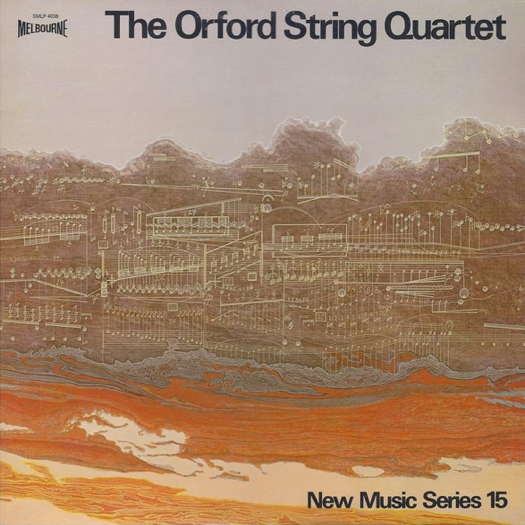
The Orford String Quartet - New Music Series 15. © 1980 Melbourne
2: Friedrich Cerha (1926-2023):
Spiegel (1961)
On Valentine's Day last, and just three days shy of what would have been his ninety-seventh birthday, we lost one of the grand old men of post-war music: Friedrich Cerha. Among all the rightly famous orchestral masterpieces of the 1960s it astounds me that Cerha's Spiegel never seems to get a look in. When one considers that he was still a relatively young composer at the time and that he was dipping his toes into a whole new musical universe, a universe without the traditional and seemingly indispensable compass points of melody, harmony, rhythm, or thematic development, the sheer sweep, power and beauty of what he managed to create is frankly breathtaking. As he said himself:
This advance into new worlds of sound entirely free of traditional formulations and the ability to take command of them was enormously exciting.
The febrile joy of new discovery is palpable throughout. Any seeming similarities to other pieces of the period by Ligeti, Scelsi or Penderecki for example are merely superficial as Spiegel, unlike those other works, is sprawled over an enormous canvas and has no shortage of drama of its own. Furthermore titles that referenced mirrors or mirroring were all the rage at the time but here the mirroring is intrinsic and structural, as the fourth of the seven pieces acts as a kind of fulcrum around which the three pieces on either side reflect each other to varying degrees. Indeed this facet of the work is even reflected in the visually beautiful score. All in all it stands as one of the prime examples of the pure visceral magic of organised and controlled sound. If you don't know it, do yourselves a favour.
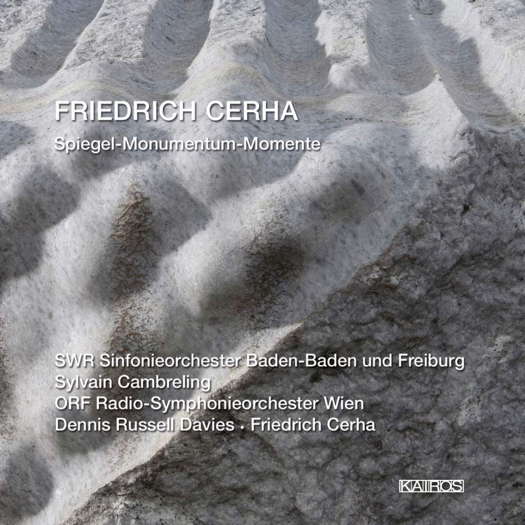
Friedrich Cerha: Spiegel - Monumentum - Momente. © 2010 Kairos Music
3: Zdeněk Šesták (born 1925):
Symphony No 2 (1970)
One composer who has managed to reach the age of ninety-seven and is still going is Czech maestro Zdeněk Šesták. I don't know of a better demonstration of his considerable compositional abilities than his second symphony; a snarling, fire-breathing beast of a work. If the opening, propulsive Andante sostenuto wasn't supercharged enough it is followed by an allegro marked feroce, molto rabbiosamente. It would seem that Šesták wanted to get something off his chest, or maybe he just wanted to make an orchestra scream. Either way it is a wonderful white-knuckle ride. Apart from the harp-drenched closing pages of the first movement we have to wait until the third movement to find Šesták in more contemplative mood, but even here the rapt meditation is interrupted by extreme anguish. It would be easy, based on the date and place of composition of this symphony, to draw the conclusion that it is a response to political events of the time, but that seems too facile and presumptive an assessment to me. I will limit myself to saying that it is a marvellous orchestral work written by an unfairly overlooked composer.
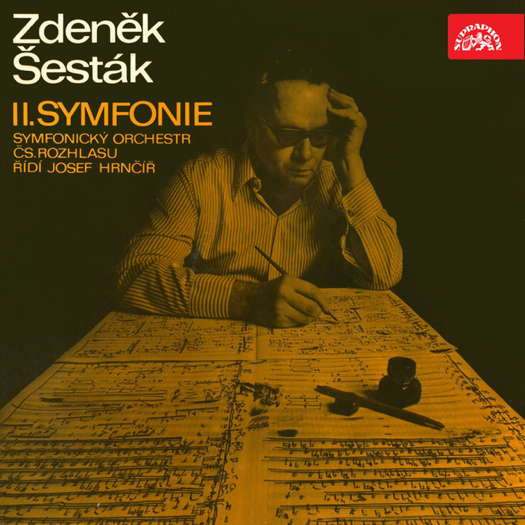
Zdeněk Šesták: II Symfonie. © Supraphon
4: Betsy Jolas (born 1926):
Quartet III (1973)
This is a string quartet but it is simply called Quartet III as not all of Betsy Jolas' quartets are for strings alone, the second, for example, is for soprano and string trio, whereas the sixth is for clarinet and string trio and the seventh for trumpet and string trio. The third is subtitled Nine Etudes. She takes her starting point from Debussy's piano example in that each of her nine movements examines specific aspects of quartet playing: bowing, vibrato, harmonics, pizzicato etc. The work as a whole is more homogeneous than this stratagem may lead one to think as some of the movements are played without a break and Jolas has managed to imbue the entire piece with an atmosphere and individual identity that remains present and holds your rapt attention throughout.
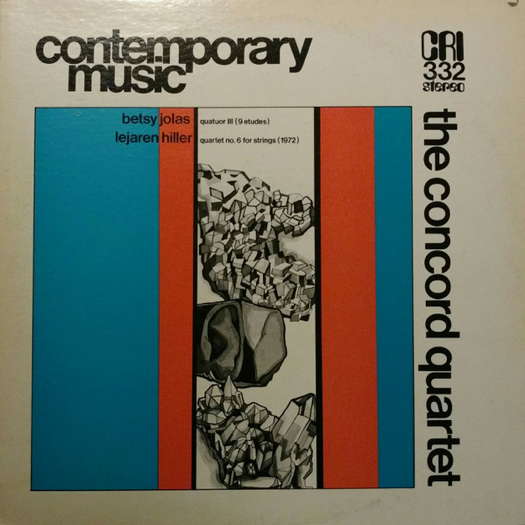
Contemporary music - The Concord Quartet. © 1974 Composers Recordings Inc
5: György Kurtág (born 1926):
The Sayings of Péter Bornemisza, Opus 7 (1968)
Like many great composers, especially of the twentieth century, György Kurtág suffers from having his name dropped a lot more often than his music is actually listened to. His relatively small catalogue is awash with absolute masterpieces that have been recorded little considering their stature. This work is a case in point. To the best of my knowledge - and I sincerely hope I am wrong - it has only been recorded twice, and it had to wait forty-five years to receive its second commercial outing. The sheer scale of this baroque concerto for soprano and piano makes it burn with an overpowering luminescence in Kurtág's mostly Webernian galaxy.
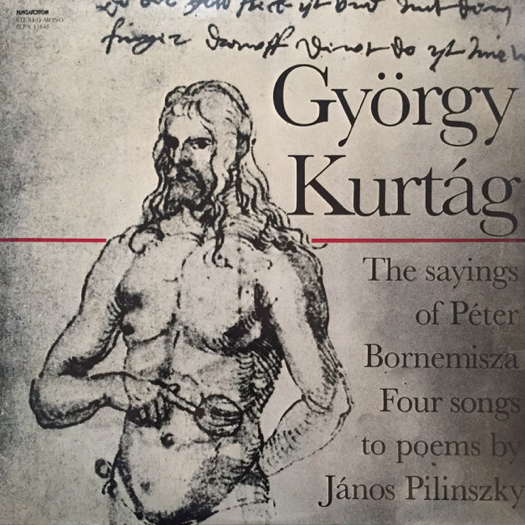
György Kurtág: The Sayings of Péter Bornemisza. © 1977 Hungaroton
When I wrote about Malipiero's Le Stagioni Italiche in What's in a number? I said that that work was like nothing else that I could think of in the repertoire. This work comes close but being, as it is, based on the writings of one sole author it has an intensity on a whole other level to Malipiero's musical mélange. Péter Bornemisza, as a Hungarian converted to the Lutheran cause in the sixteenth century is a wonderful example of just how rich, varied and intermingled the religious and intellectual tapestry of Reformation Europe was. A reality that nationalism, arbitrary borders and lazy history teaching would like people to believe was far more black and white and settled than ever was the case. At the head of Bornemisza's selected sermons Kurtág placed a motto from another Hungarian legend: Attila József which says 'I can not, I must not die before I have found purity'. I don't know if it is this search that keeps Kurtág going. I can only hope that before the inevitable happens he finds it. God knows he deserves it and God knows he has left his well-trodden path strewn with a slim but exquisitely rich harvest of bitter fruits for us to relish until we join him in oblivion.
Copyright © 12 March 2023
Robert McCarney,
León, Spain





